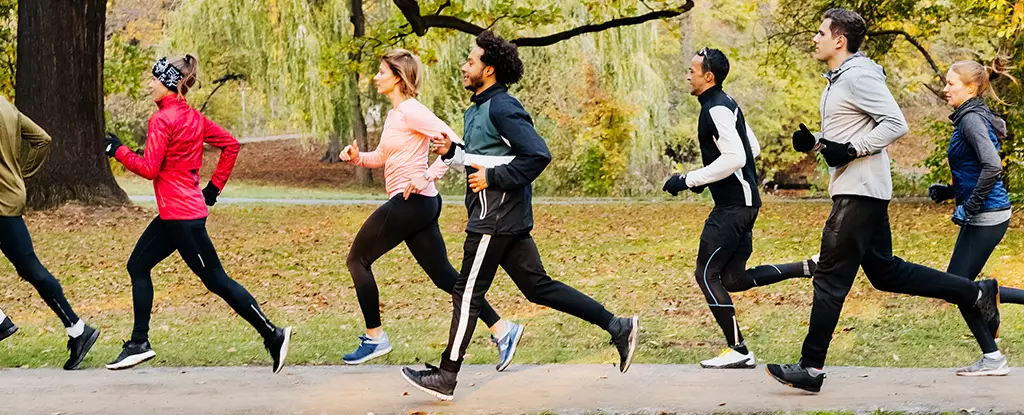Runners are known for their obsession with time and constantly pushing themselves to get faster. However, a new trend in the running community has emerged in recent years – slow running. This approach challenges the notion that running must always be done at high intensities and aims to make running accessible to everyone, regardless of their ability or speed. Slow running enthusiasts argue that this method offers many benefits, not only for physical health but also for overall enjoyment of the sport.
Contrary to popular belief, elite runners do not spend all their training time at record-setting paces. In fact, about 80 percent of their training is done at a slow, conversational pace known as zone 2 running. This pace raises the heart rate but is still manageable enough to hold a conversation. The reason behind this approach is the impact of high-intensity training on the body. As running speed increases, the body experiences more strain, increasing the risk of injury and illness. By incorporating more slow running into their training, athletes can reduce this risk and ensure consistent training.
The Importance of Building a Strong Base
One of the fundamental aspects of training is building a strong base. This refers to the physiological foundations that support higher intensity adaptations. Just like a pyramid needs a solid base, endurance runners need a well-developed base to perform well at higher intensities. Slow running plays a crucial role in building this base by developing cardio-respiratory fitness without excessive stress on the body. Additionally, running at a slower pace allows for maximum oxygen delivery to the muscles per heartbeat, leading to improved running performance.
Efficient Energy Utilization
Another advantage of slow running is its reliance on stored fat for energy. When running at slower paces, the body is more likely to utilize fat stores instead of relying on carbohydrates from food. This metabolic process is more efficient as fat yields more energy compared to carbohydrates. As a result, runners who incorporate slow running into their training use less overall energy, experience less fatigue, and perform better on race day.
Scientific Evidence
Scientific studies have provided empirical evidence supporting the benefits of slow running. Research shows that athletes who spend more time engaged in slow running experience greater gains in VO2 max (oxygen capacity) and race speed compared to those who focus more on high-intensity training. Additionally, the aerobic base development is around five times greater in slow runners. This highlights the importance of incorporating slow running into training routines, even for non-athletes who seek optimal fitness.
Finding the appropriate pace for slow running is crucial for maximum benefits. Physiologically, zone 2 running occurs below the lactate threshold, which is the point where lactate starts to appear in the blood. To determine if you’re running at the right speed, aim for a pace where you can comfortably hold a conversation and your heart rate is around 70 percent of your maximum. If conversation becomes difficult, slow down your pace. You can also try the talk test – if you can sing out loud without struggling to catch your breath, you’re at the right intensity.
Beyond the physical benefits, slow running also offers significant advantages for mental health. It allows runners to enjoy the process of running without the pressure of constantly chasing faster times. The relaxed pace encourages mindfulness and a deeper connection with the surroundings. For those who have always felt self-conscious about their running speed, embracing the concept of slow running can be liberating and inspire a newfound love for the sport.
While speed and improvement are often the primary goals of runners, slow running offers a unique approach that can benefit everyone, regardless of their running abilities. By incorporating more slow running into training routines, runners can build a strong base, improve overall efficiency, and reduce the risk of injury and illness. Slow running not only enhances physical health but also fosters a positive mindset and enjoyment in the sport. So, whether you’re a seasoned athlete or a beginner, give slow running a try and discover the many benefits it has to offer.

Leave a Reply